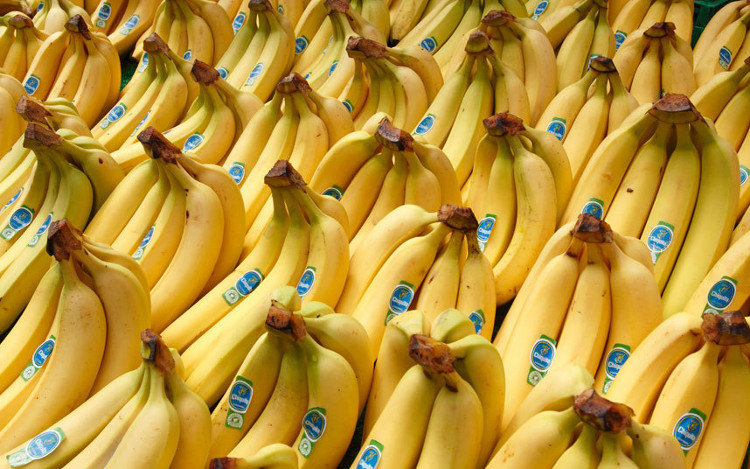Bananas are in danger of extinction because of a fungal pandemic
A toxic fungal epidemic is threatening Southeast Asian banana fields and spreading around the world, prompting scientists to warn about bananas.
According to research published in the journal PLOS Pathogens, scientists at Wageningen University, Netherlands, discovered a fungus growing from soil called Fusarium oxysporum f.sp. cubense or Panama disease , has the ability to erase the $ 11 billion banana industry worldwide.
Following the genetic makeup of the fungal strain, the team found that a form of the Panama pathogen fungus Tropical Race 4 is killing dead pepper plants, the world's most popular banana.
Gert Kema, a banana expert at Wageningen University, co-authored, said Tropical Race 4 was discovered in the 1960s in Indonesia, then spread to Taiwan, China, and Southeast Asian countries. other. In every country hit by a pandemic, banana export output has been declining over the past few decades. After several years of widespread disease, declining output is inevitable.

Pepper is threatened with extinction by the Panama epidemic.(Photo: Telegraph).
Panama disease attacks the vascular system of banana plants, causing them to wilt quickly and turn yellowish brown due to lack of water. Part of the problem is that farmers cannot eradicate this fungus but can only restrain it. But efforts to contain the disease are not effective.
According to Kema, the fungus has now entered Pakistan, Lebanon, Jordan, Oman, Mozambique and Queensland state in northeastern Australia, and is capable of raging in Latin America after a short time. Latin America is the place where more than 3/5 of the bananas are exported on the planet.
In the 1800s, a similar Panamanian pandemic swept across the Gros Michel banana population, the most popular banana consumed at the time. Gros Michel bananas were wiped out but British scientists retained a small amount of similar bananas as pepper bananas to study and prove they were resistant to the original fungus.
For more than 50 years, bananas have become a popular commodity in fruit and vegetable stores, but the study notes that despite resistance to the Panama disease by the Panama disease, it cannot resist the onslaught of Tropical Race 4. .
The situation gets worse when the world's banana populations do not have a diverse genome because each seed is cloned, meaning they do not evolve. This causes the plant to lose its defense against the disease. Meanwhile, bananas consumption today is larger than 40 years ago.
According to the research team, finding a new banana is not easy."The process of developing new bananas requires a large investment in research and development, along with the recognition of bananas as a global fruit and the main income crop, creating livelihoods for millions of farmers" , The researchers concluded.
- The world is going to have to stop bananas in the next decade?
- Big frogs with newborn babies face extinction
- 8 reasons you should eat bananas every day
- Peeling bananas is not difficult but the truth is still full of people doing
- The reason for eating bananas is better than taking western medicine
- Dietitian: Don't be foolish to eat banana instead of breakfast
- Eat red bananas better than yellow bananas
- If a global pandemic breaks out, what is your safe place?
- How to make the most of the benefits of bananas
- Why are bananas bent?
- Marvel at the most exotic and mysterious banana varieties in the world
- Why do Japanese people like to eat ripe bananas with black spots?
 Why do potatoes have eyes?
Why do potatoes have eyes? 'Tragedy' the world's largest carnivorous life: Death becomes ... public toilet
'Tragedy' the world's largest carnivorous life: Death becomes ... public toilet Tomatoes were once considered 'poisonous' for 200 years
Tomatoes were once considered 'poisonous' for 200 years Detecting microscopic parasites on human face
Detecting microscopic parasites on human face Why are banana trees cut down immediately after harvesting?
Why are banana trees cut down immediately after harvesting?  The traditional way to wrap banh tet is simple and quick
The traditional way to wrap banh tet is simple and quick  The strange banana species in the middle of Xuan Son forest is still alone, finishing and killing itself
The strange banana species in the middle of Xuan Son forest is still alone, finishing and killing itself  The most popular banana varieties are now extinct
The most popular banana varieties are now extinct  Ideas are Photoshop but these blue bananas are real
Ideas are Photoshop but these blue bananas are real  Climate change develops banana diseases
Climate change develops banana diseases 